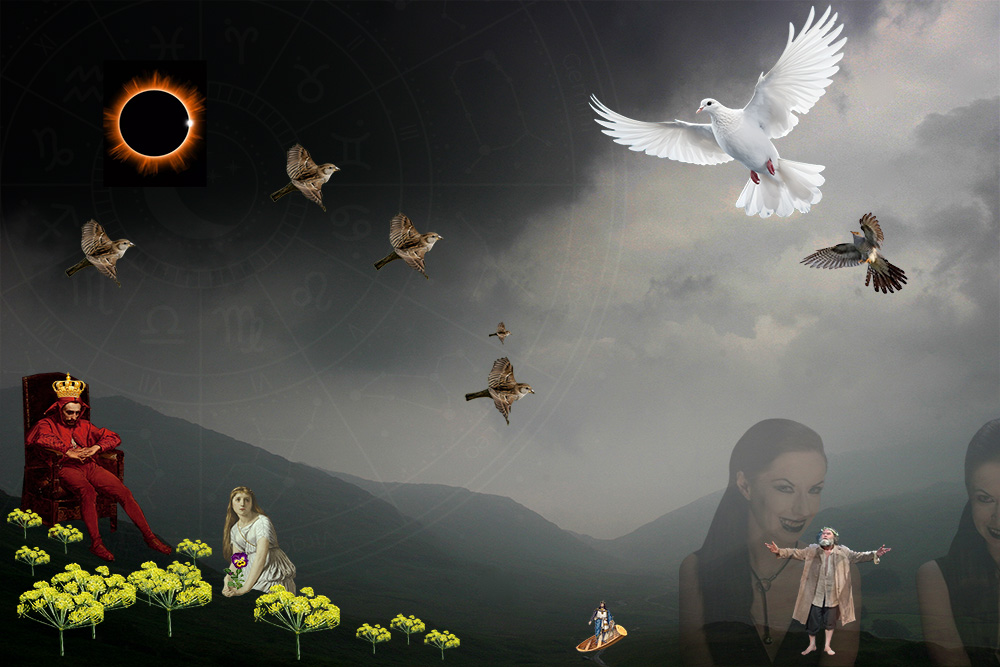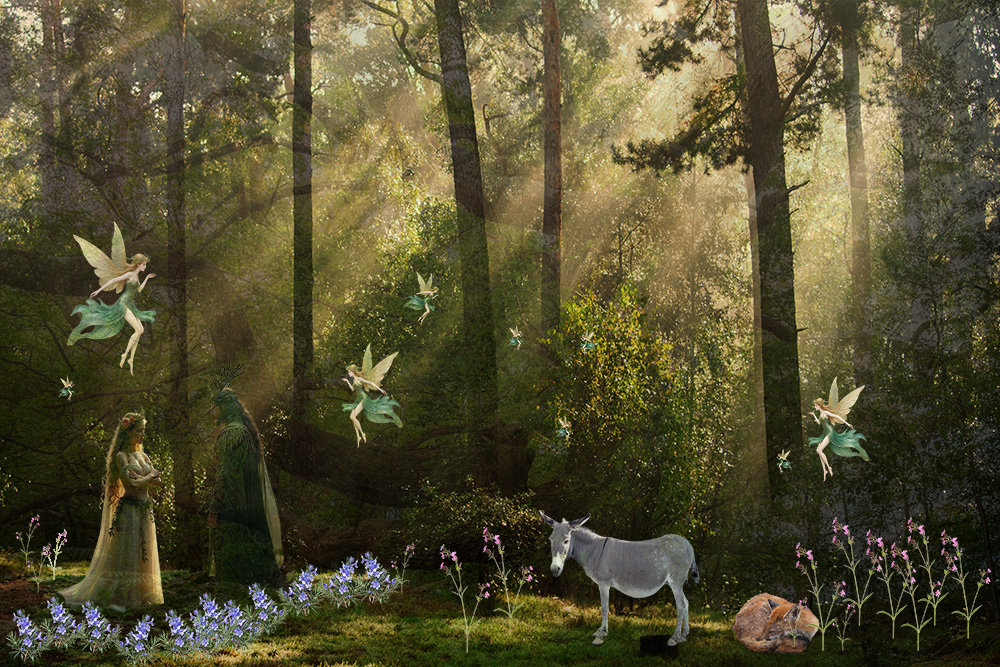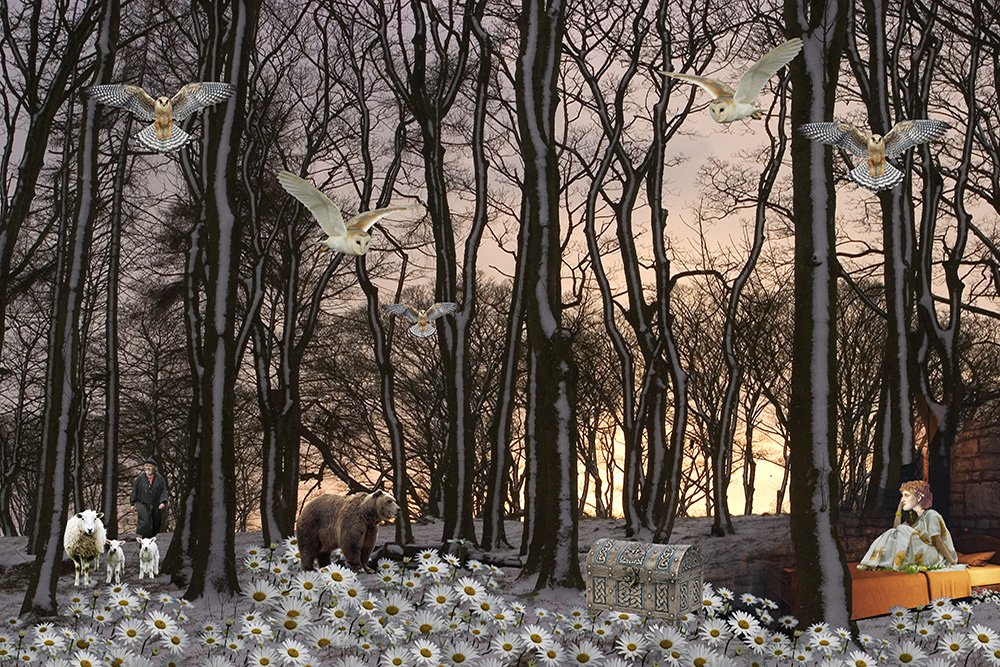
Prints £85 for A3 size
King Lear Fennel
There’s rosemary, that’s for remembrance.
Pray you, love, remember. And there is pansies,
that’s for thoughts. . . .
There’s fennel for you, and columbines.
There’s rue for you, and here’s some for me; we
may call it herb of grace o’Sundays. You must wear
your rue with a difference. There’s a daisy.
– Hamlet
Shakespeare uses flower symbolism in several plays. Ophelia’s speech is especially poignant calling on the power of nature – flowers – to heal suffering and fortify the mind. In flower folklore rosemary is for remembrance, pansies are for thinking, fennel represents flattery, rue is for regret, and daisies are for innocence.
I weave around the Shakespearean world looking for imagery, ideas, and good lines. They blend and coalesce as a picture.
A Midsummer Night’s Dream depicts an alternate place where time is different, and magic rules, quintessentially found in the woods. The Tempest began as a sunset photograph on a North of England beach. Prospero is probably Shakespeare, He arrives at a magical island with his precious books. There’s a game of chess and in my imagination, The Magician card of the Tarot.
Lear is deceived with flattery. Cordelia is sad. The French king sails to marry her. The Fool likes Lear, and is sad seeing his folly. “This is the excellent foppery of the world” says Edmund referring to planetary influence ideas, although this also applies to what Cordelia says is “that glib and oily art / To speak and purpose not” which is thrillingly good language. The photograph is a view in the Lake District on a stormy day.
Macbeth enacts the murder but encouraged and persuaded by his wife. She can’t bear what she’s done and takes her own life. He is tortured with regret and taunted by Banquo’s ghost. The Tarot card is the Nine of Swords. That’s the River Mersey where I walked at night with a tripod when the moon was bright, clear, occasionally clouded.
This is how it works for me. I think “moon.” Then where is the moon in Shakespeare? What does the moon represent? “Ill met by moonlight” Oberon says to Titania in the Dream, and my imagination gets to work. Moon is opposite sun. Moon is beautiful but seductive, the fullness having a known correspondence with imbalance. I saw this once. A man with no shirt out of control, shouting nonsense, nowhere near a pub, wandering a city street with bright silver above.
The woods in The Winter’s Tale are a Peak District forest on a snowy day with astonishing light. Perdita means “lost” and Jeanette Winterson takes up the idea in a letter.

Midsummer Night’s Dream Rosemary

The Tempest Pansies

Macbeth Rue

The Winter’s Tale Daisies.
“Dear Perdita, I’m writing this to you because I’ve heard you’re coming home. I’m not looking for a happy ending. Do you see? I’m not looking for an ending at all” – Jeanette Winterson, Letters of Separation.
